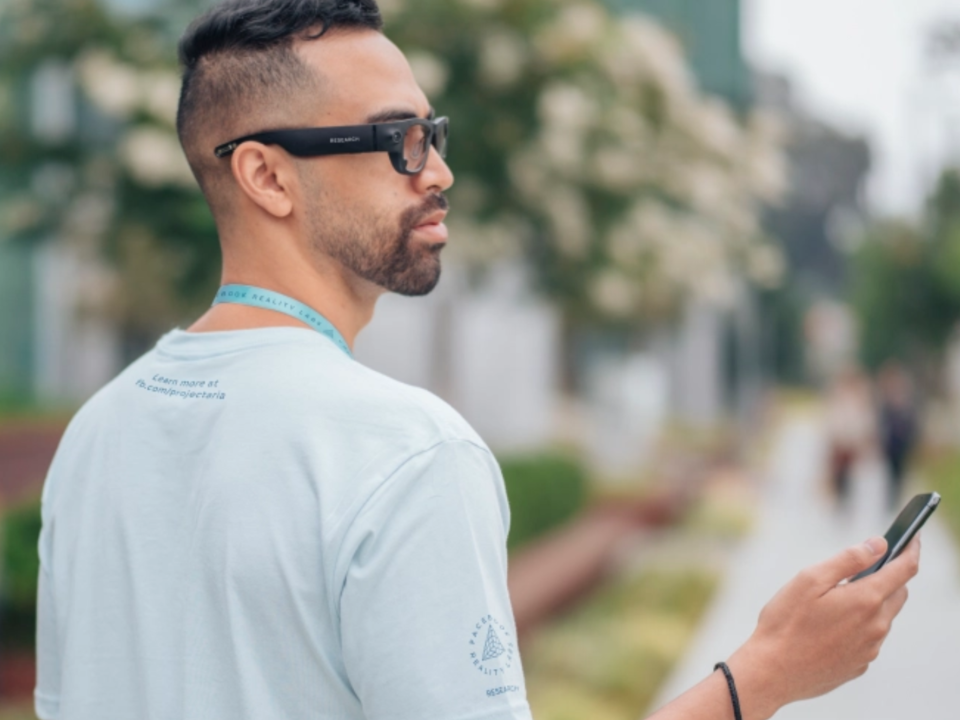Facebook moves to your face with new augmented reality glasses project

Facebook is building a wearable augmented reality device, it has announced.
During the Oculus Connect live stream on 16 September, the social media giant revealed Project Aria, which will “add a 3D layer of useful, contextually-relevant and meaningful information on top of the physical world” according to the company’s blog post.
Facebook says the device could help with everyday tasks, such as finding keys, navigating a new city, or “capturing a moment”.
“Imagine calling a friend and chatting with their lifelike avatar across the table. Imagine a digital assistant smart enough to detect road hazards, offer up stats during a business meeting, or even help you hear better in a noisy environment”, Facebook says.
“This is a world where the device itself disappears entirely into the ebb and flow of everyday life.”
However, Project Aria is not yet designed for consumers. Instead, it is a research device that Facebook will use to work out the kinks of real AR glasses.
Project Aria will not display information on the inside of the lens and wearers cannot view or listen to the data captured by the wearable.
Instead, it will capture audio and video from a first-person perspective, as well as eye movement and location data, to help Facebook determine how augmented reality should work.
“Starting in September, it will be made available to a limited group of Facebook employees and contractors in the United States, trained in both where and when to use the device, and where and when not to” Facebook says, encouraging wearers to use the devices at home, on Facebook’s currently-closed campuses, and in public.
Facebook is, of course, not the only company to develop smart-glasses. Google Glass was infamously developed in 2013, and was met with criticism from privacy advocates.
In preparing Project Aria, Facebook is providing transparency tools to highlight when data is being gathered and when it is recording.
This includes the devices displaying “a prominent white light” when data is being recorded, a physical mute button, and will only collect data in “Facebook offices, wearers’ private homes, and public spaces” unless they have permission from stores and venues to record inside them.
The company is also using this technology to develop “LiveMaps”, a project which will be used for navigation.
“AR glasses will download the most recent data from the 3D map, and then only have to detect changes — like new street names or the appearance of a new parking garage, and update the 3D map with those changes”, Facebook said.
In a separate announcement, Facebook is also collaborating with Ray-Ban for another kind of wearable, but one that will not be classified as an augmented reality device nor have an integrated display, the company confirmed.
That product is scheduled to launch in 2021, for an as-yet undisclosed price.
Read more
Facebook adds new feature to encourage blood donations in fight against coronavirus
Facebook reveals augmented reality glasses that give user 'perceptual superpowers'
Facebook leaks new Oculus Quest 2 virtual reality headset in promotional videos
Augmented reality could be 'bigger than the web', says Adobe executive

 Yahoo Finance
Yahoo Finance 